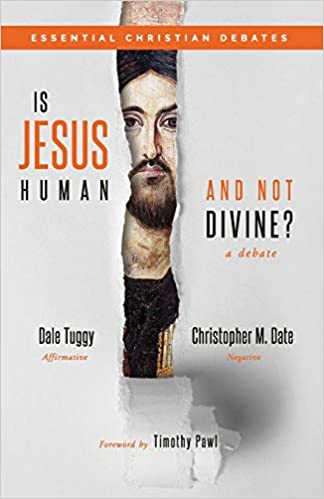Podcast: Play in new window | Download
Subscribe: Spotify | Email | RSS

Trinitarian and unitarian Christians often argue about whether the Bible teaches that Jesus is the one true God. But in this presentation from a 2017 apologetics conference, Dr. Mike Licona argues that the real, historical man Jesus considered himself to be God, and he argues like a secular historian, not assuming that the biblical writings are inspired.
Dr. Licona focuses on some of the earliest New Testament texts, arguing that they show that the earliest Christians believed Jesus to be divine, i.e. to be the one God. Then he argues that the best explanation of this knowable historical fact is that Jesus himself claimed to be God, something which he suggests is indicated by certain passages in even the earliest New Testament gospel.
In this first part I interact with the critically evaluate Dr. Licona’s argument for the first step, that the earliest New Testament writings give us strong evidence for thinking that the earliest Christians thought that Jesus is God. He founds his case on the much-discussed Philippians 2:5-11, and then discusses some passages in Paul’s writings where Paul seems to refer to Old Testament prophecies about Yahweh and then applies them to Jesus. Is this Paul’s way of implying that Jesus is God himself?
Links for this episode:

Dr. Licona’s page at Houston Baptist University
Dr. Licona’s ministry RisenJesus.com
Shabir Ally vs. Mike Licona (Did Jesus Rise from the Dead? 2004)
Bart Ehrman vs Mike Licona (Are the Gospels Historically Reliable? 2018)
What was the first century fate of Jesus? Ali Ataie vs. Mike Licona (2006)
The Life of Jesus: History or Mistake? Mike Licona & Matthew McCormick (2016)
“Is Jesus Human and not Divine?” – Dr. Dale Tuggy vs. Chris Date (2019)
Proverbs 18:17; Philippians 2:5-11; Matthew 20:28; Ephesians 4:4-6; Isaiah 45:5; Isaiah 7:10-25; Matthew 1:23; Philippians 1:2; Ephesians 1:3; Ephesians 1:17; 1 Corinthians 15:20-28; 1 Corinthians 11:3; Romans 10:9; Acts 2:36; Joel 2:32; 1 Thessalonians 3:11-14; Zechariah 14:5; 1 Thessalonians 1:9-10; Romans 1:1-7; Galatians 1:11-24; Galatians 2:1-14.

Tuggy and Date, Is Jesus Human and not Divine?
podcast 124 – a challenge to “Jesus is God” apologists
Loke, The Origin of Divine Christology
a reading of Philippians 2:5-11
Where Christology Began: Essays of Philippians 2
podcast 225 – Biblical Words for God and for his Son Part 2 – Old “Lord” vs. New “Lord”
podcast 145 – ‘Tis Mystery All: the Immortal dies!
podcast 320 – Thoughts on my debate with Rogers about Mark – Part 2 – interpretive fails
the Bible teaches that David is God
the Bible on another previous life of Jesus
On Numerical Sameness / Identity / “Absolute” Identity
the apologetics blind-spot on numerical identity
This week’s thinking music is “Moon Shadow” by Little Glass Men.


If only trinitarians would read the entire context of Isaiah 45 from which Paul is quoting. Nations are shown that YHVH is the only true God by witnessing the things he does on behalf of the nation of Israel his son. In acknowledging YHVH as the true God, the nations do this by bowing to Israel and profession that “God is with you.” (Isaiah 45:14). This is HOW nations during that time would have acknowledged YHVH the true God, by honoring his son Israel. Isaiah 45:14 and 45:23 are synonymous with each other.
This is why Paul applies this to Jesus. Jesus is the king of Israel. God’s son. You acknowledge the true God YHVH by honoring his son who came in the name of God his Father and who has revealed him, he’s the light of the world.
Comments are closed.